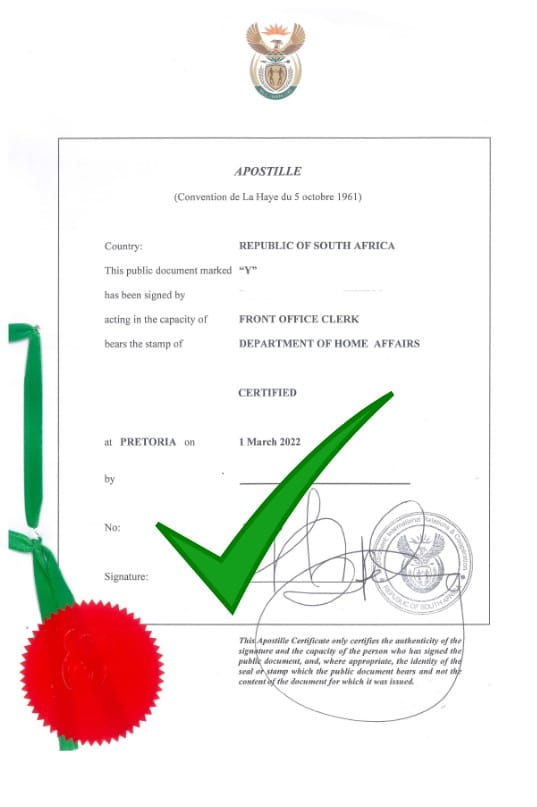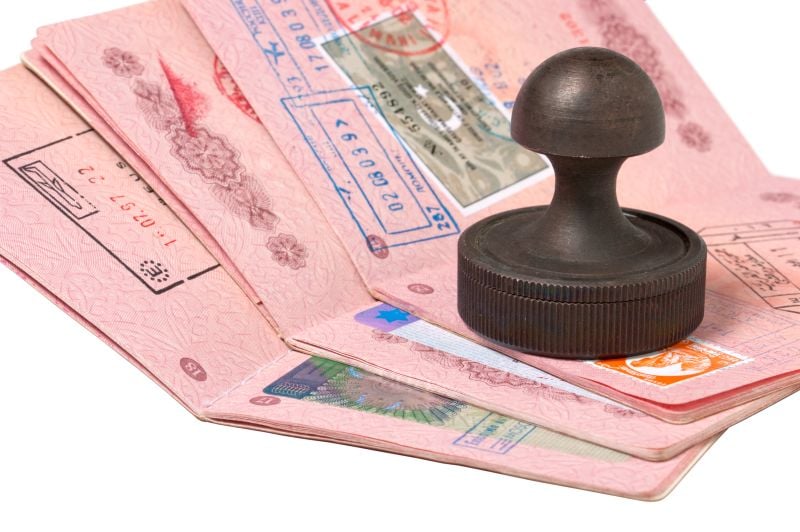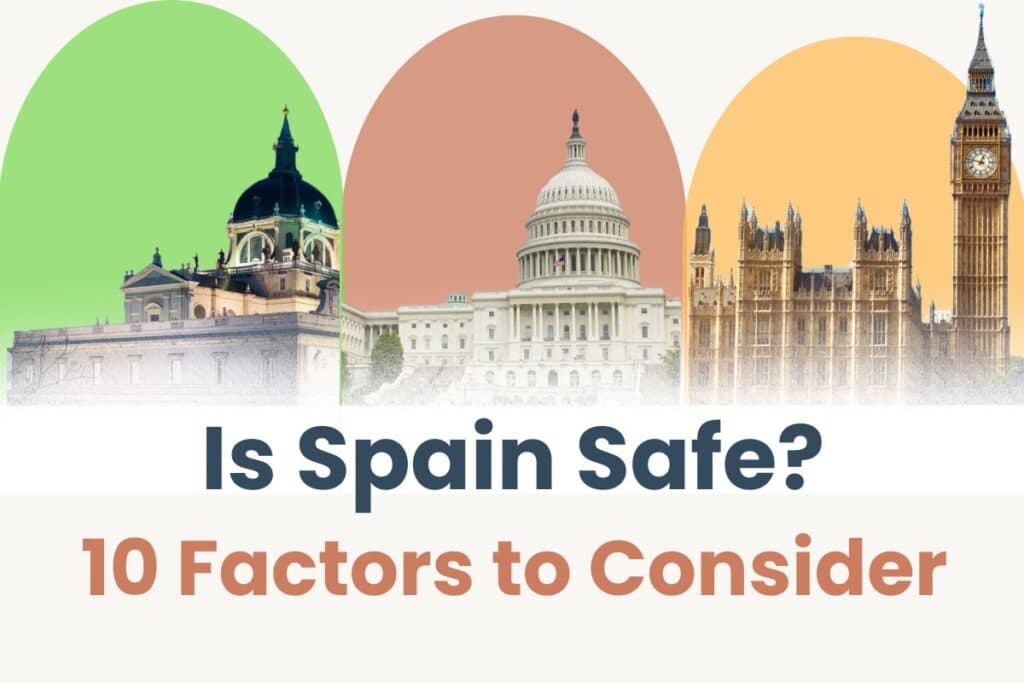The Hague Apostille Process in Spain can be overwhelming or confusing when gathering documents to support your move to Spain. It was an unknown concept that I had to get to grips with. But while it is a crucial step in the immigration process—covering visas, residency, and citizenship applications—it is an easy concept to grasp and process to follow.
This guide explains the Apostille process, why you need it, and how to ensure the process works for you.
What is the Hague Apostille Process In Spain?
The first thing to understand is that it is a process — the Apostille Process.
It certifies the origin of a public document (e.g., a birth certificate) in its country of origin for use in other countries without the need for further authentication. These countries are members of the Hague Apostille Convention of 1961. Over 100 countries are members, including Spain, the US, and the UK.
A standard Apostille certificate, which verifies the signature, seal, and status of the issuing authority, is affixed to the document.
The Apostille is issued by a ‘competent authority’ in the country from which the document originates. This could be the Secretary of State’s office in the US or the Foreign, Commonwealth, and Development Office in the UK.
Without an apostille, your documents may not be accepted, leading to delays and complications in your plans.

Why You Need an Apostille for Spain
Spain, like many other countries, requires foreign documents to be authenticated to ensure their legitimacy. This is necessary for many legal, educational, immigration, and professional purposes. This guide focuses on immigration, especially visas and residency in Spain.
Documents That May Require an Apostille
This list is not exhaustive, but documents include:
- Birth Certificate
- Marriage Certificate
- Criminal Background Check
- Academic Transcripts and Diplomas
- Powers of Attorney
Apostille Process for Spanish Immigration Applications
Spanish consulates and immigration authorities require certain documents to undergo the apostille process. For my Digital Nomad Visa application, I had to have my criminal record checked and my birth certificate apostilled.
Visa Applications
Birth Certificates, Marriage Certificates, and Criminal Background Checks must be apostilled.
Residency Applications
Similar to visa applications, plus any other document verifying identity, marital status, or background.
Citizenship Applications
Includes all the above documents plus any additional documentation required for proving eligibility for citizenship.
Step-by-Step Guide to Apostilling Documents
Once you know the documents you require, the process is:
1. Obtain the Document(s)
Ensure the document is the original or a certified copy.
2. Find the Appropriate Competent Authority in Your Home Country
‘Competent authority’ is the designated office or agency responsible for issuing apostilles in your country. This varies by country, but you can find your appropriate authorities (there can be more than one) at the Hague Conference on Private International Law website.
As an example of requiring multiple authorities, in the US, your FBI Check document can be apostilled by the Bureau of Consular Affairs. At the same time, if you live in Florida, your marriage certificate is apostilled by the Division of Corporations, a Florida State website.
3. Send the Document(s) to the Competent Authority
This can be done in person, by mail, or online, depending on the authority’s procedures.
You will have to complete all required forms, pay a fee (which varies by country and document type), and provide a return address for receiving the apostilled documents.
4. Receiving Your Apostilled Documents
Processing times for apostilles can vary, but it can be anything from a few days to a few weeks. Once you receive your apostilled documents, verify that the apostille is attached correctly and that the information is accurate. If there are errors, contact the issuing authority immediately to get the corrections made.
5. Submitting to Spanish Authorities
Send apostilled document(s) with your visa, residency, or citizenship application.
Important Considerations
While the basic apostille process is similar worldwide, there are some specific considerations when moving to Spain. For example, documents in languages other than Spanish may need to be translated by a certified translator. Also, some documents may require notarization before they can be apostilled.
If you are unclear if your documents require additional steps, contact your Spanish consulate or embassy.
Tips and Tricks
- Plan Well Ahead
Start the process early to avoid delays. The time it takes to process documents can vary widely between competent authorities. Additional delays can occur at peak times, such as in the summer. - Use a Professional Service
A golden rule here at Moving to Spain is to consider using services that specialize in obtaining apostilles to simplify the process and avoid costly delays and document resubmissions. - Keep Copies
Always keep copies of your apostilled documents. Always! - Check Expiry Dates
Some documents may have expiration dates. Ensure they are valid at the time of submission and beyond likely processing times or specific time requirements. - Translate Documents
Where required, ensure all apostilled documents are translated into Spanish by a certified translator. - Consult with a Legal Expert
If your situation is unusual or has some specific aspects not covered in the immigration process you are following, seek advice from a legal expert specializing in Spanish immigration and citizenship.
Conclusion
The apostille process is essential for your documents to be recognized in Spain. Without the right documents apostilled correctly, your application will fail.
However, understanding and following the necessary steps becomes just another reasonably straightforward step in your moving to Spain journey.
Remember to start the process early, double-check all requirements, and don’t hesitate to seek assistance from relevant authorities, be they professional experts or Spanish offices. If you follow this guide, you’ll have no issues with the Hague Apostille process for your Spanish immigration applications.








Please could you help me with the translation and legalisation of my police check from Madagascar.
I wish to teach English in Spain, however the Spanish embassy refused my application.
Look forward to hearing from you soon.
Olivia
Hi Olivia. You’ll need to discuss this requirement with our Spanish immigration lawyer partner, who can assess your case. All the best, Alastair
Hi, I would like to know if all the pages of the document must have the black stamp and the red seal
Hi Orcleide
Thank you for coming to Moving to Spain and for your question. When a multi-page document requires an Apostille under the Hague Apostille Convention, only one Apostille certificate is typically affixed to the document. The Apostille certifies the authenticity of the entire document, not each individual page. Therefore, it is unnecessary for every single page of a multi-page document to have its own separate Apostille certificate affixed to it.
However, if multiple documents are bundled together (eg, birth certificate and marriage certificate), each document would generally require its own Apostille. In this case, it is important to ensure that all pages are securely bound to prevent tampering and maintain their integrity as a single document.
Finally, it is worth noting that the Apostille certificate varies by country, as each has its own design.
I hope this helps.
Best regards
Mike
I apostilled my birth certificate and marriage certificate from Pakistan. My documents have stamped date 2 September 2024. There is no any expiry date on the papers. Are my papers valid till June 2025 in Spain?
Hi Maryam, thank you for your enquiry.
I assume you need these documents for a visa application or similar. For Spanish visa and residency applications, Spanish consulates and immigration offices generally require that birth and marriage certificates and their apostilles be issued and legalized within the last 3 months prior to visa submission. While not explicitly stated in official requirements, consulates often follow this guideline.
This means both the certificates and the apostilles must be dated within 3 months of your visa or residency application date for them to be accepted. If not, Spanish authorities may reject the document and request a more recent version.
My advice is to obtain newly issued birth and marriage certificates before requesting the apostille, ensuring both the new certificates and their apostille certificates are within the 3-month window before your application. It is also worth contacting your Spanish consulate directly to confirm their particular requirements, as practices can vary between different consular offices.
I hope this helps. All the best, Mike.
Hey Mike
Thanks for your article. I am from Germany and am planning to apply for residency in Spain. As an EU citizen this appears to be straight forward, however, given that I am not going to earn an income in Spain (I am employed in the UK and my bank account is UK based, too), I will need to provide bank statements and health insurance. My question is will these types of documents need to be apostilled, the online guidance is a bit vague on this (referring more to legal documents and documentation you mention)? Or will a simple printout of each document (statements covering 12 months, plus the health insurance certificate) suffice?
Many thanks!
Hi Harald and thank you for your question
Health insurance documents and bank statements are not government-issued documents and therefore cannot be apostilled. Spanish authorities typically accept them as-is, sometimes with a bank stamp or other certification if requested, but apostilles are not required. For my Digital Nomad Visa, I did not have to apostille my bank statements.
Ensure your documentation and translations, if needed, are clear, but they do not need to be apostilled.
On an additional note — and assuming you stay in Spain for more than 183 days in a calendar year — be aware you will automatically become a Spanish tax resident. Check out our ‘Working Remotely in Spain for a UK Company >> 2025 Visa, Tax & Social Security‘ and ‘Spanish Tax System Guide >> Expat Essentials 2025‘ articles for more details.
All the best, Mike
Thanks so much Mike for your feedback!